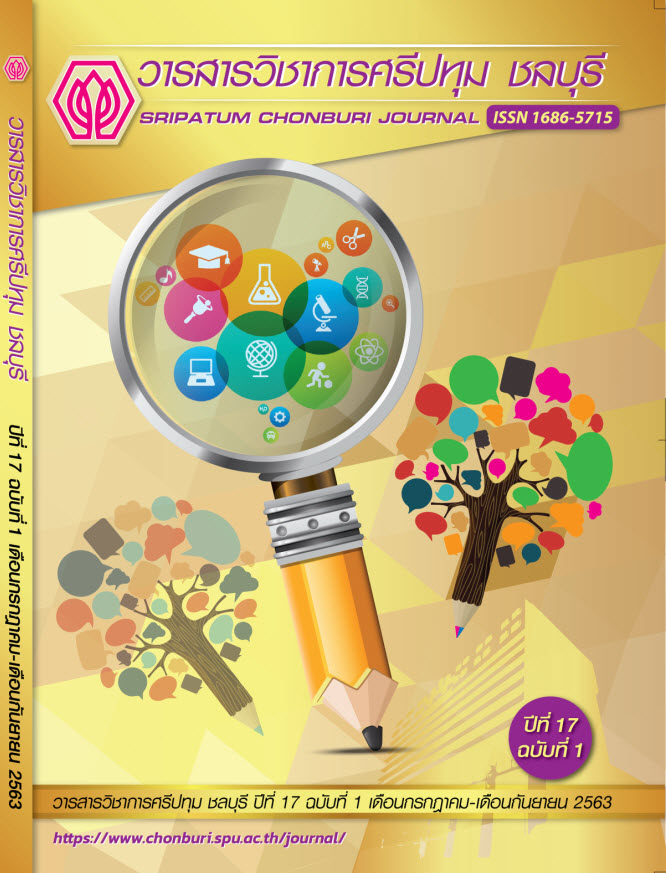EVALUATING THE GOVERNMENT POLICY ON PROMOTING SMEs IN THAILAND: A COMPARATIVE STUDY BY REGION AND BY CLASSIFICATION
Keywords:
government policy evaluation, SMEs promotion.Abstract
This research aims to study the efficiency, effectiveness, and appropriateness of the implementation of government policies in promoting SMEs in Thailand, to compare the results of government policies on promoting SMEs in 6 regions, to compare the operating results under government policies on promoting SMEs in 6 regions, classified by 3 SMEs sectors: manufacturing, services, and trade (wholesale and retail), and to compare SMEs’ access to government support that affects development in 6 regions. Besides, a study was conducted to compare access to government support that affects different development in terms of business operation, classified by business size and type. There were 2,400 SMEs entrepreneurs in manufacturing, services, and trade (wholesale and retail) sectors in 6 regions in the study sample. The questionnaire was used as a research tool. Also, interviews, focus group discussions, and participant observations were used for 147 cases. In the quantitative research part, the statistics used were frequency, percentage, mean and standard deviation, and the content analysis technique was used to analyze the qualitative data.
The results of the research showed that: 1) the SMEs supporting projects organized by the government agencies were consistent with the mission of the department and in accordance with the government policy framework for promoting SMEs, 2) on the average, developing knowledge and skills of entrepreneurs was ranked at a high level; accessing to financial sources and financial services at a high level; accessing to government services at high level, 3) comparison of operating results under the government policies on SMEs promotion in 6 regions, classified by 3 SMEs sectors: manufacturing, services and wholesale and retail, showed that the SMEs promotion in the six regions resulted in an increase of revenue by 1-5 percent of the total income compared to the year 2017, as well as an increase in employment, 4) the comparison of access to government support that affects the development in the six regions showed that some SMEs were unable to access the government promotion due to limited public relations, unqualified SMEs entrepreneurs such as in terms of management system, informal business setup, improper practice regarding tax payment, environmental conservation or security issues, as required by laws, and 5) the comparison of access to government support which affects the development of business operations classified by size and type of business showed that the average access was ranked at a medium level.
However, the government must improve its policies for SMEs support and promotion in terms of continuity and eliminate the duplication of activities and projects of support agencies, focusing on providing the supports that are relevant to the problems and needs of each group of SMEs.
References
ของกรมส่งเสริมอุตสาหกรรม. กรุงเทพฯ: กรมส่งเสริมอุตสาหกรรม กระทรวงอุตสาหกรรม.
สำนักงานส่งเสริมวิสาหกิจขนาดกลางและขนาดย่อม. (2559). คู่มือแนวทางการจัดเก็บข้อมูลตัวชี้วัดการติดตามผล
การดำเนินงานและประเมินผลโครงการ. กรุงเทพฯ: สำนักงานส่งเสริมวิสาหกิจขนาดกลางและขนาดย่อม.
_______. (2560). แผนการส่งเสริมวิสาหกิจขนาดกลางและขนาดย่อม ฉบับที่ 4 (พ.ศ. 2560-2564). กรุงเทพฯ:
สำนักงานส่งเสริมวิสาหกิจขนาดกลางและขนาดย่อม.
Downloads
Published
Issue
Section
License
บทความทุกบทความเป็นลิขสิทธิ์ของวารสารวิชาการศรีปทุม ชลบุรี



